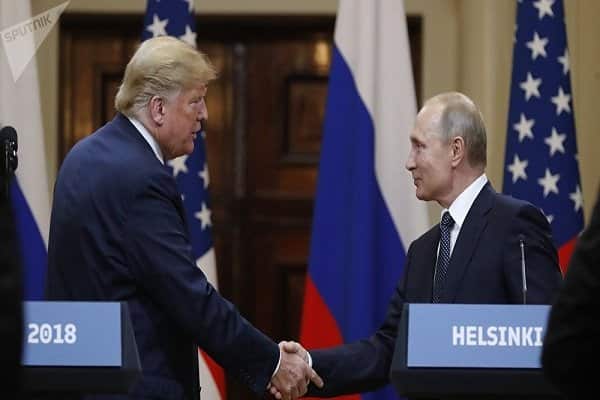What will Russia-US relations be like under Trump?
The US foreign policy in the post-Biden era against the superpower Russia is one of the important issues that has attracted the attention of political analysts and international relations experts. It is important for the world to know whether Washington’s view of Moscow will remain the same after several decades of World War II and the Cold War, or whether some of the interests and personality similarities of the two famous politicians, Trump and Putin, will create new differences. Already, the American news website Newsweek has announced that Ukrainian President Zelensky is the leader who feels more threatened by Trump’s return to the White House than others.
Although the task of Donald Trump’s new cabinet is not yet clear, there is a relatively clear picture of his foreign policy approach. Political observers expect to see changes in the current US foreign policy based on Trump’s words during his election campaign as well as his decisions and behaviors from 2016 to 2020. Meanwhile, it seems that the two important issues of Ukraine and NATO are the most important points of attention in US-Russia relations, and it is expected that Trump’s approach in both cases will be different from the Biden administration.
The important issue regarding US foreign policy is that the president-elect, as in his first term, still adheres to the slogan of “America First”, and as a result, it can be understood that he opposes all the actions of Joe Biden’s team in the Ukraine case. However, analysts believe that such a decision is solely about the Ukraine issue and does not mean the end of historical tensions between the US and Russia.
Trump is aware of Russia’s strength and resilience
One of the important issues regarding the Ukraine case and the attitude of NATO allies towards Russia is that despite sanctions and international pressure and the prolongation of the war, Russia has shown great resilience and has not given up on its positions. This is the issue that has attracted the attention of Alexander Gabov, an analyst at the Carnegie Endowment for International Peace and the Financial Times, who wrote: “Russian President Vladimir Putin’s remarks after Donald Trump’s victory in the US elections are of particular importance.”
The political analyst adds: “Ending the Ukrainian crisis is also important for Russia, and from the Kremlin’s perspective, Trump’s victory has created a new opportunity to resolve this problem. Of course, the Russian leadership is closely watching the decisions of the new US administration and will make decisions based on Trump’s approach. For example, if Trump pushes to reduce the global price of oil to $50 per barrel, this may create long-term challenges for the Putin government, but the Kremlin is also hoping that Trump, unlike Biden, will not support the decisions of European allies in the Ukraine case.”
These words of the Financial Times analyst come at a time when Trump has pledged to end the war quickly in most of his campaign speeches, and Trump’s advisers have also openly stated that the United States has no business with 20 percent of Ukraine remaining in Russian hands, because their vital priority is to stop the war and tension. Perhaps it is because of these positions of Trump’s advisers that fear and panic have gripped Western capitals and they have come to the conclusion that Trump will not support Ukraine in the coming months.
Trump’s range of decisions may be even broader than a ceasefire and may include accepting that the West will accept Ukraine’s non-membership in NATO. However, such behavior is not due to the so-called peace-loving nature of Trump and the Republicans, but rather the fundamental issue is that Trump is still pursuing the same old propaganda stunt and media hype to end the ceasefire in Ukraine in his own name in the first weeks of his term.
Similar propaganda behaviors have been observed in the case of US-North Korea tensions, and the world saw that in that issue, Trump was simply looking for media attention and controversy. However, at least regarding the Russia-Ukraine conflict, it can be said that the Trump team has realized the fact that, first, Russia’s resilience and resistance are an important issue, and second, that the continued extensive financial and military support from NATO members for Zelensky has not yielded any tangible results or achievements.

